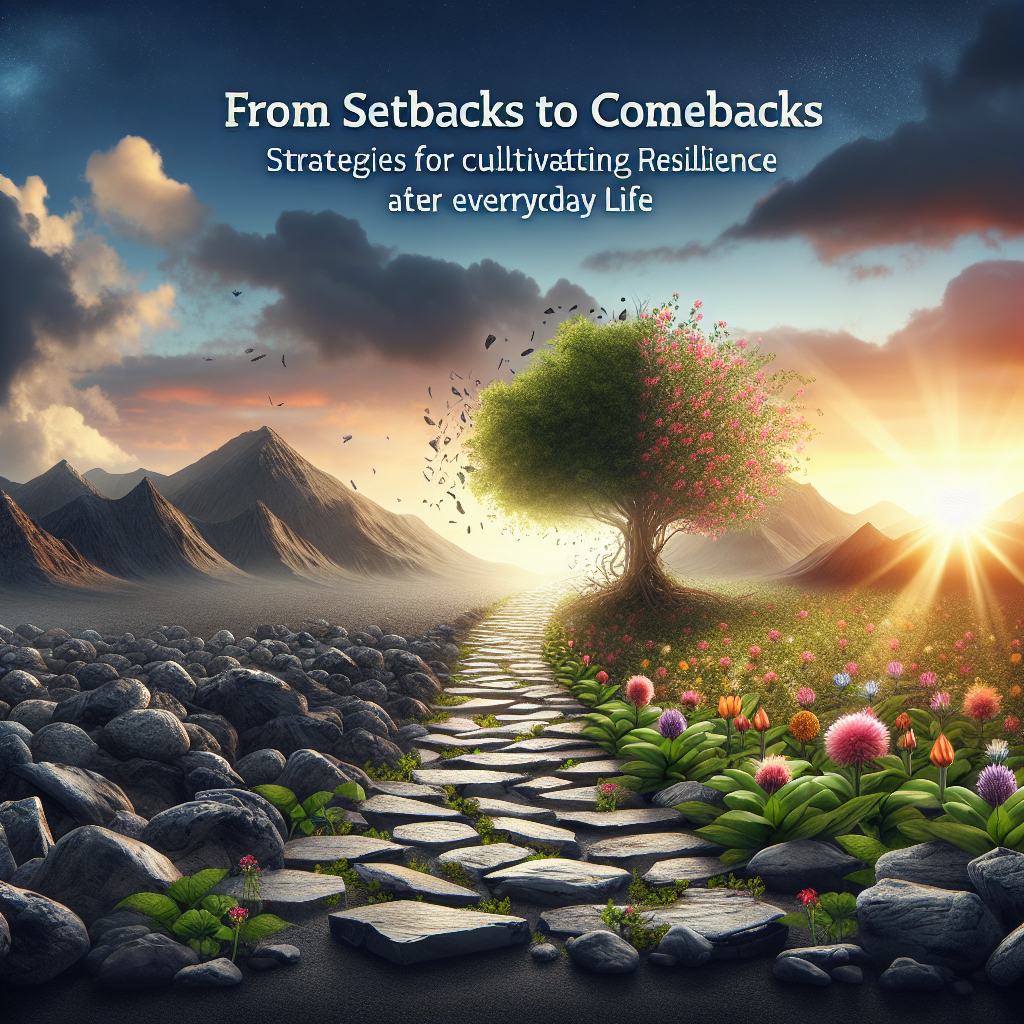Resilience is the ability to bounce back from setbacks, adapt to change, and keep moving forward in the face of adversity. It is a crucial skill in navigating the ups and downs of everyday life and achieving success in the long run. Cultivating resilience requires a combination of mindset, coping strategies, and support systems to help you weather the storms that life throws your way.
From setbacks to comebacks: Strategies for cultivating resilience in everyday life
1. Develop a growth mindset
One of the key components of resilience is having a growth mindset. This means believing that you have the ability to learn, grow, and improve in any situation. Instead of seeing setbacks as failures, view them as opportunities for growth and learning. Embrace challenges and setbacks as a chance to build resilience and develop new skills.
2. Build a strong support network
Having a strong support network is essential for cultivating resilience. Surround yourself with friends, family, and mentors who can provide emotional support, encouragement, and feedback when you need it. Lean on your support network during tough times and remember that you don’t have to go through challenges alone.
3. Practice self-care
Taking care of your physical, emotional, and mental well-being is crucial for building resilience. Make time for activities that bring you joy, relaxation, and fulfillment. Practice mindfulness, exercise regularly, eat healthily, and get enough sleep to support your body and mind in times of stress.
4. Set realistic goals
Setting realistic goals can help you stay focused and motivated in the face of setbacks. Break down big goals into smaller, manageable tasks and celebrate small victories along the way. Stay flexible and adjust your goals as needed to adapt to changing circumstances.
5. Develop problem-solving skills
Being able to problem-solve effectively is a key component of resilience. Instead of getting overwhelmed by challenges, break them down into smaller steps and brainstorm potential solutions. Seek advice from others, gather information, and take action to address the problem head-on.
6. Practice gratitude
Practicing gratitude can help shift your perspective and build resilience in everyday life. Take time each day to reflect on the things you are grateful for, whether it’s a supportive friend, a beautiful sunset, or a warm cup of tea. Cultivating a sense of appreciation can help you find positivity and resilience in even the toughest of times.
7. Embrace failure
Failure is a natural part of life and an opportunity for growth. Instead of dwelling on your mistakes, embrace failure as a chance to learn, improve, and try again. Use setbacks as stepping stones to success and remember that resilience is built through overcoming challenges.
8. Seek professional help if needed
If you’re struggling to cope with setbacks and challenges, don’t be afraid to seek professional help. A counselor, therapist, or mental health provider can provide you with the support, tools, and resources you need to build resilience and navigate difficult times.
FAQs
Q: How can I build resilience in the face of uncertainty and change?
A: Building resilience in the face of uncertainty and change requires developing a growth mindset, building a strong support network, practicing self-care, setting realistic goals, developing problem-solving skills, practicing gratitude, embracing failure, and seeking professional help if needed.
Q: How can I bounce back from a major setback or failure?
A: Bouncing back from a major setback or failure requires embracing the experience as a learning opportunity, seeking support from friends and family, practicing self-care, setting new goals, developing problem-solving skills, and maintaining a positive attitude.
Q: What are some self-care practices that can help build resilience?
A: Self-care practices that can help build resilience include practicing mindfulness, exercising regularly, eating healthily, getting enough sleep, spending time in nature, engaging in hobbies and activities that bring you joy, and seeking support from friends and family.
Q: How can I stay motivated and focused during tough times?
A: Staying motivated and focused during tough times requires setting realistic goals, breaking tasks into smaller steps, celebrating small victories, practicing gratitude, seeking support from others, and maintaining a positive mindset.
In conclusion, cultivating resilience in everyday life is a journey that requires effort, practice, and dedication. By developing a growth mindset, building a strong support network, practicing self-care, setting realistic goals, developing problem-solving skills, practicing gratitude, embracing failure, and seeking professional help if needed, you can build the resilience needed to navigate life’s challenges and setbacks with grace and strength. Remember that setbacks are a part of life, but they can also be stepping stones to comebacks and success.




Leave A Comment